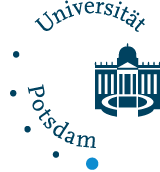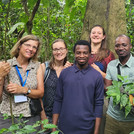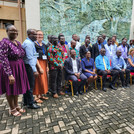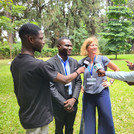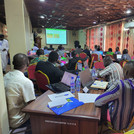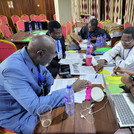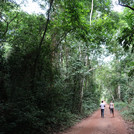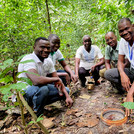The final workshop of the Greenhouse Gas Determination in West Africa’s Agricultural Landscape Project was held at the Forestry Research Institute of Ghana (FORIG) from 02.09. – 06.09.2024. Members of our working group, project partners and invited stakeholders from Ghana, Burkina Faso and Niger met to discuss the final outcomes of the project.
Researchers involved in the GreenGaDe project successfully identified concrete climate-smart agricultural practices that should be priorized. There is a growing awareness among farmers about the adverse effects of climate change on agriculture, with many recognizing agroforestry and tree planting as essential strategies for both adaptation and mitigation.Retaining trees on agricultural fields improves both food security and carbon storage.
Over two days, a diverse group of stakeholders, including representatives from West African ministries, policymakers, extension officers, environmental protection agencies, and non-profit organizations, provided valuable feedback on the main findings regarding climate-smart agriculture and greenhouse gas emissions in West Africa’s agricultural landscape. Discussions centered on overcoming challenges to promote sustainable agricultural practices and enhance climate resilience in the region, as well as improving communication with decision-makers (see also UP News).
The GreenGaDe project has demonstrated the importance of interdisciplinary approaches to facilitate the exchange of knowledge and experience across countries and institutions, fostering capacity development.
